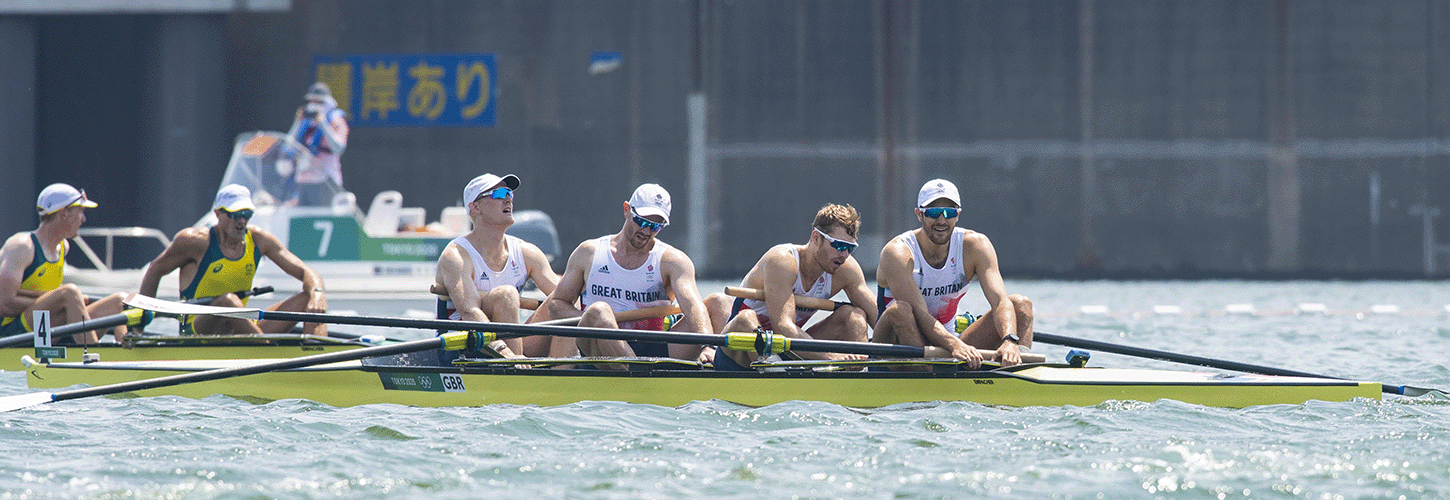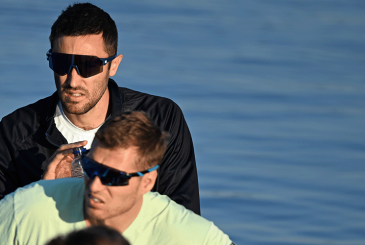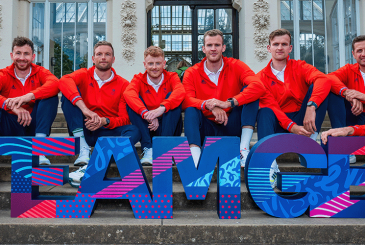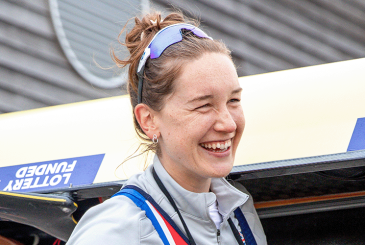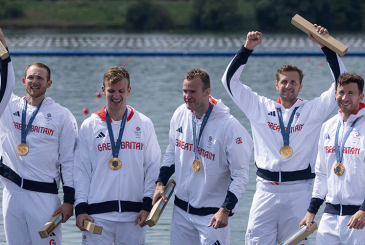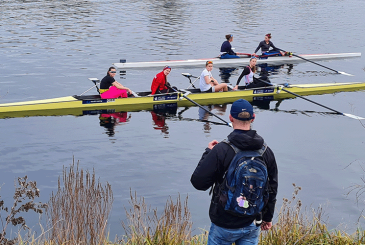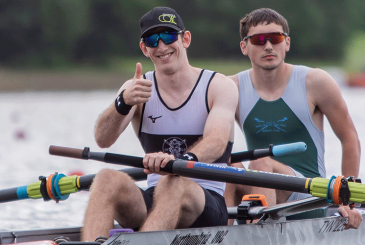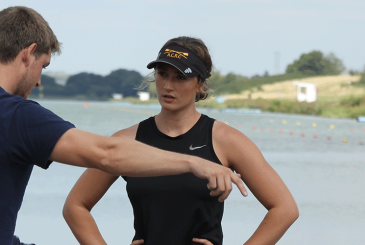Setbacks are an inevitable part of sport – but they don’t have to define you. In fact, setbacks can provide a valuable learning opportunity, if you respond to them in the right way. 2024 Olympic Champion Sholto Carnegie shares how missing a medal at Tokyo in 2021 became a turning point in his journey – offering lessons in resilience, mindset, and the power of persistence that helped pave the way to success in Paris three years later.
I remember sitting in the grass of the Olympic Village in Tokyo, taking a deep sigh and thinking: I’ve got a long journey ahead to get to Paris. I had just finished racing in the Olympic final. We came fourth. Just outside the medals. It was devastating. We’d had high hopes of winning, and this wasn’t how I had envisioned the day going.
I remember feeling the weight of how much effort it had taken to even reach the Olympics – and now, if I wanted another shot at Olympic glory, I had to go through it all again.
So, how do you pick yourself up after that? Here are six things I did to navigate this major setback.
1. Set smaller goals with checkpoints along the way
When the road ahead feels overwhelming, break it down. Rather than thinking about the entire rowing season in one go, I’d suggested focusing on smaller, achievable goals with clear checkpoints.
I set smaller goals lasting just a few weeks and checked in with myself at each marker. If I wasn’t seeing progress or felt low on motivation, I’d adapt at that point – but until then, I was committed fully to reaching the next checkpoint. This approach made the process more manageable and helped me stay committed, even on the toughest days.
2. Create a positive narrative
Reframing the story in your mind is powerful. After a disappointment I would remind myself: “This will be the story I’ll one day tell one day. The tougher the moment, the more meaningful the story becomes.”
I would use positive self-projection – repeating to myself, “I will do it.” The more I said it, the more I believed it. That belief became a quiet source of momentum, even when the racing season felt a long way away.
3. Reframe setbacks as opportunities to learn
Setbacks force you to reflect. I started asking myself what I could do better – technically, mentally, physically. How could I be stronger, more consistent, more composed? I learned not to let failure define me. If you take one learning point from each loss, then it’s not wasted.
Sometimes winning can cover cracks – losing shows you where the work needs to be done. Once the emotions have settled, use a notepad to write plan how you can take practical steps forward.
4. Focus on what you can control: The 3 Circles Exercise
This simple exercise helps you focus on what’s within your control. It brings clarity and helps narrow your focus when pressure builds.
Draw three circles on a page, label them ‘Can Control’, ‘Can’t Control’, and ‘Can Influence’, and jot things down as they come to you. It’s a great tool to reset your mindset and simplify your approach.
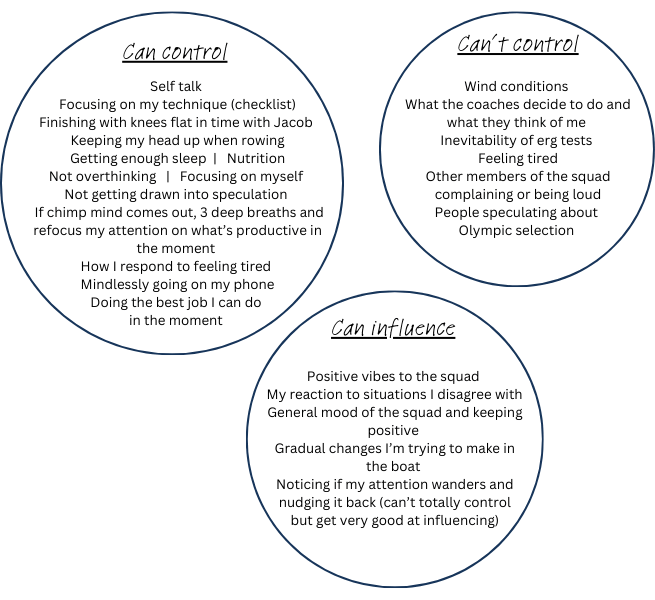
5. Keep a sense of perspective
Losing hurts. There’s no way around that. But when you zoom out, you realise how lucky we are – to train every day, to race, and to care about something as much as we do rowing.
Having a passion like this is rare. And even on the tough days, just showing up still counts for something. Perspective isn’t about pretending it doesn’t matter – it’s about remembering why it does. In those harder moments, lean on your teammates. Be open about how you’re feeling – I can guarantee you’re not the only one. Chances are, someone else is going through the same thing.
6. Race often, fail fast
When I was studying and rowing at Yale, we did some form of side-by-side racing almost every day. That meant we were constantly racing – and losing at least some of the time.
Those small losses became opportunities to adapt, to respond, to get better. It taught me to treat racing as a learning tool, not just a performance metric. This is one of the great strengths of American collegiate rowing: you race often, learn fast, and develop a positive relationship with the competitive process. Every race becomes valuable, win or lose.
Conclusion
Every point in my career that I deemed a failure has been followed by success.
Setbacks are part of the journey and they have taught me resilience, perspective, and the value of showing up every day.
As clichéd as it sounds It’s not just about winning – it’s about the friendships, the journey, and who you become along the way. There were times I had doubts, moments where it felt like I was going nowhere – but they weren’t wasted. They were part of the process. Keep showing up, keep learning, and trust that it all adds up in the end.
Photo: David Pearce, British Olympic Association


